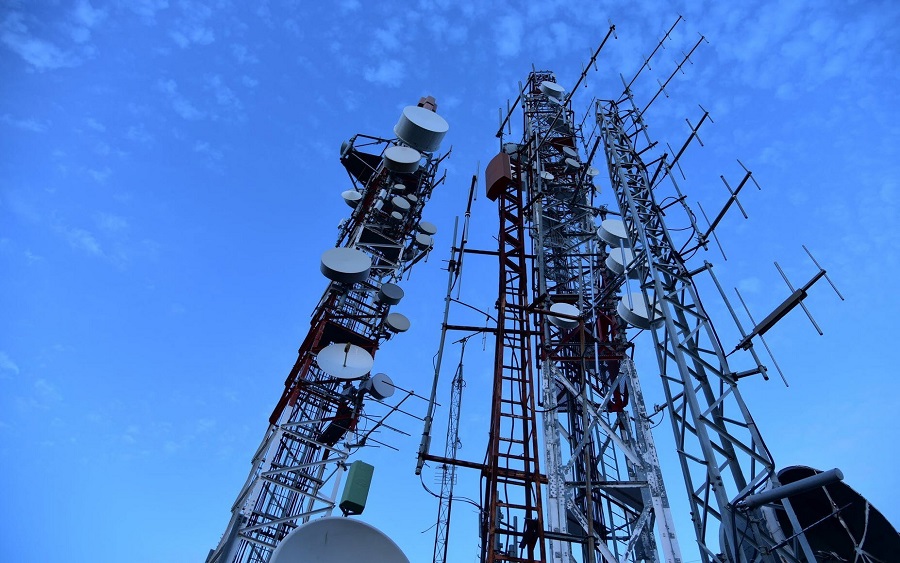Nigeria’s telecommunication sector has proven to be one of the biggest gainers amid the COVID-19 pandemic. The sector recorded an 18.10% growth in Q2 2020. This is according to the latest Gross Domestic Product (GDP) report released by the National Bureau of Statistics.
According to the GDP report, the telecommunication sector grew by 18.1% in real terms during the second quarter of 2020, compared to 11.34% recorded in the corresponding quarter of 2019, and 9.71% in the previous quarter (Q1 2020).
The COVID-19 induced lockdown significantly disrupted the Nigerian economy in the second quarter of 2020. However, the telecommunication sector came out resilient, driven by increased demand for data usage and growth in the number of mobile subscribers.
READ: Five oil majors reduce value of their assets by $50 billion in Q2
Nigeria’s telecom sector posts biggest growth in 6 quarters
Broadly, the Information and Communication sector is comprised of the four activities of Telecommunications and Information Services, Publishing, Motion Picture, Sound Recording, and Music Production; and Broadcasting.
Information and Communication (ICT), as a broad sector, grew by 15.1% and contributed 17.87% to the total value of real GDP (N15.9 trillion) in the quarter.
In Q2 2020, the telecommunication sector grew by 18.1% year-on-year, while it grew by 24.8% quarter-on-quarter. This is the biggest growth the telecom sector would record since Q4 2018, when the telecom sector posted a GDP growth of c.19%.
READ ALSO: Jumia confirms COVID-19 lockdowns did not help e-commerce revenues

Meanwhile, the agric sector slowed, while manufacturing, trade, and others shrunk
Nigeria’s agricultural sector slowed down in Q2 2020, with a growth of 1.58% growth (year-on-year), from 1.7% in Q2 2019 and 2.2% in the previous quarter (Q1 2020).
The report showed that other critical sectors of the economy such as manufacturing, transportation, construction, accommodation and food service, education, real estate, and trade also recorded significant contractions in the quarter under review. See the indicators below:
- Nigeria’s Manufacturing sector contracted by 8.78% in Q2 2020, from -0.13% and 0.43 recorded in Q2 2019 and Q1 2020.
- Oil refining, a component of the manufacturing sector, dipped by 67.7% (year-on-year).
- Transportation and storage sector contracted in real terms by 49.23% (year-on-year).
- Accommodation and food services contracted by 40.19%.
- Construction sector shrinks by 31.8%.
- Education sector down by 24.1%.
- Other sectors with significant contractions include; Real Estate (21.99%), Trade (16.59%), Professional & Technical services (15.41%), other services (15.07%).
READ: 2020 Q2 Analysis: Conoil Plc, hanging by the thread
Key Takeaways
The Nigerian economy, during the quarter, witnessed the ripple effects of the twin shocks — weakened global oil price which led to a decline in Nigeria’s oil revenue, and the COVID-19 induced lockdown which almost grounded the economy to a standstill.
The telecom sector has remained resilient amid the COVID-19 pandemic given the surge in the demand for data usage and increase in total mobile subscribers. Due to the COVID-19 pandemic, organizations are adjusting to digital workspace, a new normal which is expected to increase data services, and further enhances growth in the sector in the short to medium term
READ ALSO: UPDATED: Nigeria’s GDP contracts by 6.10% in Q2 2020, as critical sectors plunge
While most sectors recorded negative growth in Q2, the trend may subsist in subsequent quarters of the year as concerns about emergence of second wave of the COVID-19 pandemic may distort the recovery trajectory of critical sectors












